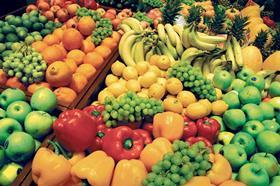
Policy makers and the fruit and vegetable sector must work together to create a commonly favourable environment for sustainable business success and a healthier society.
That was the underlying message coming out of Freshfel Europe's AGM, held together with Profel on 20 June in Brussels, which took place under the banner 'Fruit and vegetables: Healthy and sustainable solutions for Europe’s food challenges'.
“Stronger emphasis on fruits and vegetables”, says Freshfel’s General Delegate Philippe Binard, 'will not only benefit the sectors productivity, but also will help policy makers to achieve their targets with regard to the EU’s overall economic and sustainable development targets as well as to create a healthier society.
Tackling the digital evolution
“Especially the usage of digital asset and its continuous evolution is impacting the way people work, learn and consume,' he continued. 'The sector will need to learn to eventually benefit from these changes.'
The European Commission’s speaker, Aldo Longo, DG Agriculture underlined in his opening keynote that new emphasis will be laid on the development of the digital single market. The integration of the agricultural sphere into the European data-economy will be a key priority of the upcoming debate on the CAP and the multi-annual work plan.
Concurrently, the sector will have a responsibility to report on market developments and to support the introduction of coherent and useful rules. More efficiency through new developments such as robotics, improved communication structures and tracking systems, will help to increase the sector's productivity and substantially contribute to reach the European Commission’s target to generate jobs and growth through the continuous improvement of the production and trading environment.
Investing in research and development
Eventually, investment into research and development will be an outmost priority for policy makers and the sector, as this is the natural consequence evolving from the profound and comprehensive changes which ongoing digitalization is causing to production, supply chain and in the relationship with the consumers.
In his video message to the audience, Agricultural Commissioner Phil Hogan emphasised the importance of the European Commission’s Horizon 2020 programme, as an important cornerstone to the fruit and vegetable industry.
Research and innovation will be at the heart of the agenda, as enlarged investmentcin innovation will secure the competitiveness of the sector. This is not at last a reaction to the strong engagement of the industry, which had heavily contributed to the public consultation that the Commission has recently conducted on the ongoing CAP reform.
R&I will help to understand further and to improve the positive assets of fruit and vegetable production in comparison to other agricultural produce, as fresh produce, beyond their nutrition and health assets also ranks the highest among all agricultural sectors in sustainable production methods and contributes essentially to a climate-friendly production environment.
Improving consumption patterns through the knowledge society
Both research and development as well as the digital changes pose huge opportunities to tackle the stagnating fruit and vegetable consumption, as big data is able to deliver useful information about the behaviour of various consumer’s target groups.
Speakers such as Prof. David Hughes, Marketing expert from the Imperial College in London, Social Media expert Daniel Fritz, but also Matthias Rohra from Proveg International, highlighted a key message: The sector needs to understand how its target group is acting, thinking and deciding.
Once rightly analysed and understood, e.g. the growing group of “Flexitarians” and “Reducitarians” have the potential, to disrupt the current fruit and vegetable sales - provided the product is innovative.
During the panel debate on “Growth through a strong political impetus” together with MEP’s Paolo De Castro, Hilde Vautmans, Angelique Delahaye and DG AGRI Director Jens Schaps, the policy makers re-called the responsibility of the industry to invest into consumption increasing activities.
The industry in turn reminded the panellists, that an increased consumption of fruit and vegetables is not only beneficial to revenues, but is essential to tackle the European obesity problem, decreases public health investments and is an essential contributor to the Commissions overarching goal to create jobs and growth. Fruit and vegetables are part of the solutions to the challenges that the society and public authorities are confronted with. Decision makers therefore need to better utilise the potential that f&v can have on individual and societal health and sustainability targets such as manifested within the UN sustainability and development goals. The responsibility cannot lie on the sector itself, but must be a common goal of both sides.
Opportunities are evolving and the sector is willing to embrace the changes, technology and digitalisation are creating. But only reinforced cooperation and communication among the sector and the policy making sphere will ensure, that the fruit and vegetable industry is able to continuously contribute to the European Commission’s holistic approach on jobs and growth, and to tackle sustainably the most urgent European challenges in the field of health and nutrition.
Improved cooperation is not a one-way street, but delivers a win-win momentum for industry and policy. Enhanced policy focus on f&v and its positive assets, will help to create a level of playing field to create a more environmentally friendly agriculture policy and to ensure lasting and self-sufficient food supply for all EU member states.



